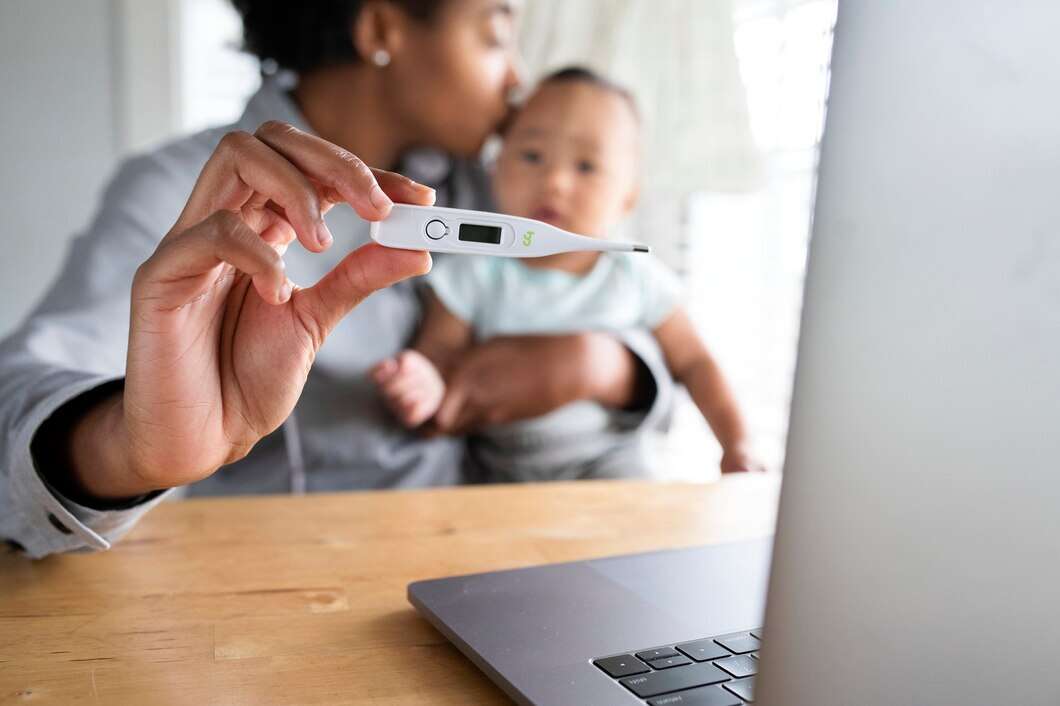Tracking Your Baby's Daily Body Temperature
November 26,2024
As a parent, one of your most important gigs is to make sure your kid is healthy and doing well. One way to keep tabs on your baby's health is by checking their temperature every day. Small changes in body temperature can be an early indicator of health issues or a normal part of growth and development. In this guide, we'll explore the importance of monitoring your baby's temperature, how to do it accurately, and what those readings might mean for your little one's health.
Understanding Body Temperature
What Is Normal Body Temperature?
A normal body temperature for a baby can vary slightly, but it typically ranges from 97.7°F to 100.4°F (36.5°C to 38°C). It's important to note that a baby's temperature can fluctuate throughout the day, influenced by factors such as activity level, feeding, and clothing.
Why Track Temperature?
Tracking your baby's temperature can help you identify patterns, detect potential illnesses early, and provide valuable information to healthcare providers during check-ups or if your baby is unwell.

How to Measure Your Baby's Temperature
Methods of Measurement
There are several methods to measure a baby's temperature, each with its own advantages and disadvantages:
- Axillary (Armpit): Easy and safe, but less accurate.
- Temporal (Forehead): Convenient and non-invasive, often used for quick checks.
- Rectal: Most accurate but can be uncomfortable for the baby.
- Ear: Quick and relatively accurate with an infrared thermometer.
When to Measure
It's best to measure your baby's temperature at the same time each day to establish a baseline and identify any changes. Morning readings can give you a starting point, while evening readings can show how the temperature has changed throughout the day.
Interpreting Temperature Readings
What Constitutes a Fever?
A fever in babies is generally considered to be a temperature above 100.4°F (38°C). However, it's essential to consider your baby's overall behavior and symptoms, as a slightly elevated temperature may not always indicate illness.
When to Seek Medical Attention
If your baby has a fever accompanied by other symptoms such as lethargy, difficulty breathing, or not eating, it's important to consult with a healthcare provider promptly.
Benefits of Daily Temperature Tracking
Early Detection of Illness
Regular temperature checks can help you detect the onset of an illness early, allowing for timely intervention and care.
Monitoring Health Trends
By tracking your baby's temperature over time, you can identify trends and patterns that may indicate underlying health conditions or simply the natural variation in your baby's body temperature.
Challenges and Considerations
Accuracy and Consistency
Ensuring the accuracy of temperature readings is crucial. Using the same method and thermometer each time can help maintain consistency.
Impact of Environment
External factors such as room temperature and the baby's recent activities can affect temperature readings. It's important to take these into account when interpreting results.
Integrating Technology
Digital and Smart Thermometers
Modern technology has made temperature tracking more accessible with digital and smart thermometers. These devices can provide quick, accurate readings and some even allow you to track and store data over time.
Mobile Apps and Health Trackers
There are various mobile apps and health trackers that can help you monitor your baby's temperature and other vital signs. These tools can send alerts if temperatures fall outside of a normal range, providing peace of mind.
Related Topics: Sleep and Immunity
Sleep and Temperature Regulation
A baby's sleep can affect their body temperature. Ensuring your baby gets adequate rest is important for overall health and temperature regulation.
Immunity and Temperature
As your baby grows, their immune system develops, which can sometimes cause a slight increase in temperature. Understanding the connection between immunity and temperature can help you interpret readings accurately.
Conclusion
Tracking your baby's daily body temperature is a simple yet effective way to monitor their health. By understanding what constitutes a normal temperature, how to measure it accurately, and what to do with the information, you can take proactive steps in ensuring your baby's well-being. Remember, every child is unique, and what's normal for one may not be for another. Consistent monitoring, combined with regular check-ups and open communication with healthcare providers, is the key to maintaining your baby's health.